"The death of the album is oversold – a lot of people still want to get their teeth into something, and if you give them something intelligent they’ll go for it": Public Service Broadcasting reaches peak altitude on their new project
J. Willgoose Esq. navigates PSB’s fifth album The Last Flight – a tribute to pioneering aviator Amelia Earhart
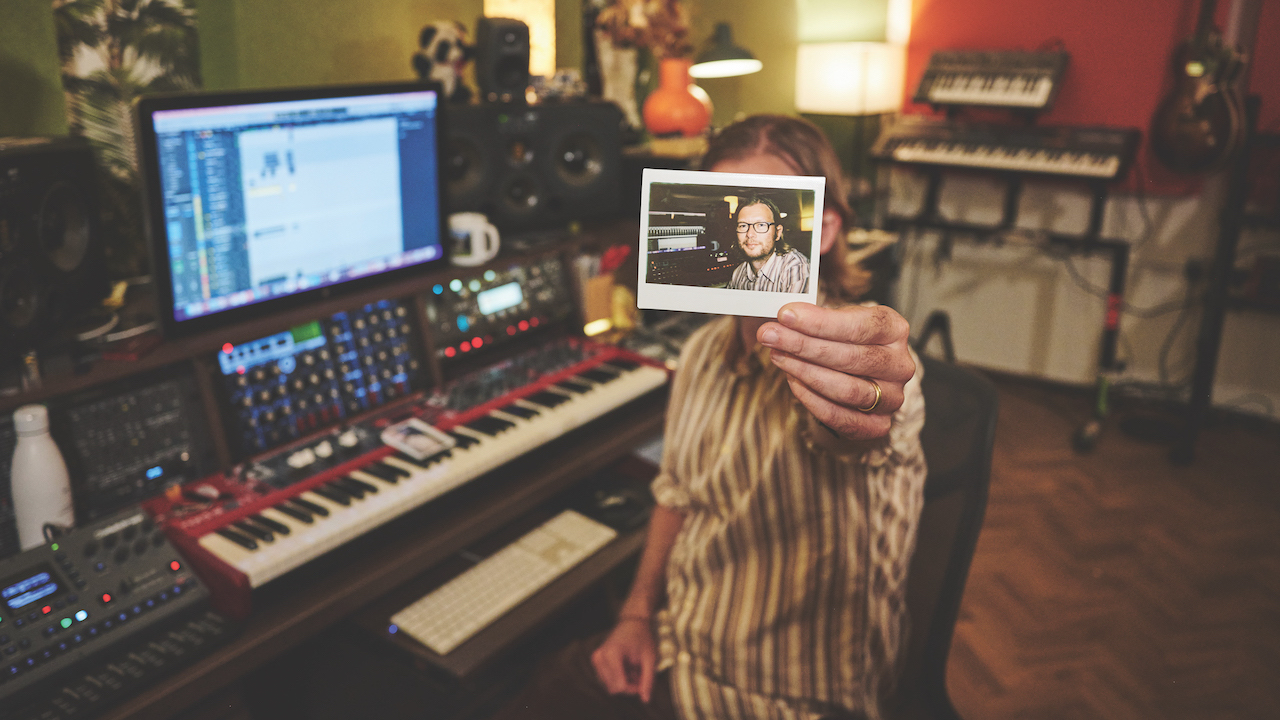
A band quite unlike any other, Public Service Broadcasting found immediate success debuting in 2013 with the instrumental LP, Inform–Educate–Entertain. Having taken an early decision to replace lead vocals with samples sourced from the British Film Institute and National Archive, PSB quickly carved a unique space in the alternative rock scene, following up with similarly themed concepts on subsequent LPs, The Race for Space, Every Valley and Bright Magic.
For their fifth album, The Last Flight, chief songwriter J. Willgoose Esq. was keen to highlight some sort of underrepresented female icon, eventually plumping for aviator Amelia Earhart. In 1922, aged just 25, the pioneering American flew higher than any woman had before and later broke speed and distance records while becoming the first female to fly solo across the Atlantic and Pacific oceans.
Tragically, Earhart and fellow navigator Fred Noonan would not return from their final venture, flying a Lockheed Model 10-E Electra aircraft from Papua New Guinea to Howland Island in the Central Pacific. On The Last Flight, Willgoose creates an extraordinary tribute to the iconic aviator with a blend of edgy rock, poignant live strings and newly recorded dialogue by actors, manipulated in order to give the album’s spoken word prose a deceptively ‘30s-style sonic character.
There’s a tendency for bands to start well and then decline, but 10 years in and Public Service Broadcasting seems to pick up more momentum with every release. Is that how it feels to you?
“Maybe that’s how it should feel if I was able to have a more objective head, but not really, no - I actually think the last four years has knocked the stuffing out of a lot of bands. We’re pretty modestly successful and were lucky to sell a lot of our first two records on our own label, but during Covid I didn’t think things were sustainable anymore, especially for a band operating with two or three people.
“Things seemed like they were back to normal in 2021/22 but they really weren’t – ticket sales were still painfully slow and we were limping along. It’s been a battle for us to keep things on an even keel, so I don’t know how bands who haven’t got the luxury of our early success have managed, but we’re coming out of that a little bit now, so all my fingers are crossed.”
Obviously, PSB is an instrumental band. Was a decision made right at the start not to sing yourself and use spoken word samples as a narrative?
Want all the hottest music and gear news, reviews, deals, features and more, direct to your inbox? Sign up here.
“The decision was taken by me not being able to sing [laughs]. I did try vocals with my first few bands, but sometimes it takes a while to realise that your voice isn’t an instrument that people want to hear. I don’t think some artists realise how lucky they are if their voice connects with people on an instinctive level because it’s such a huge advantage to have one that invites people in.
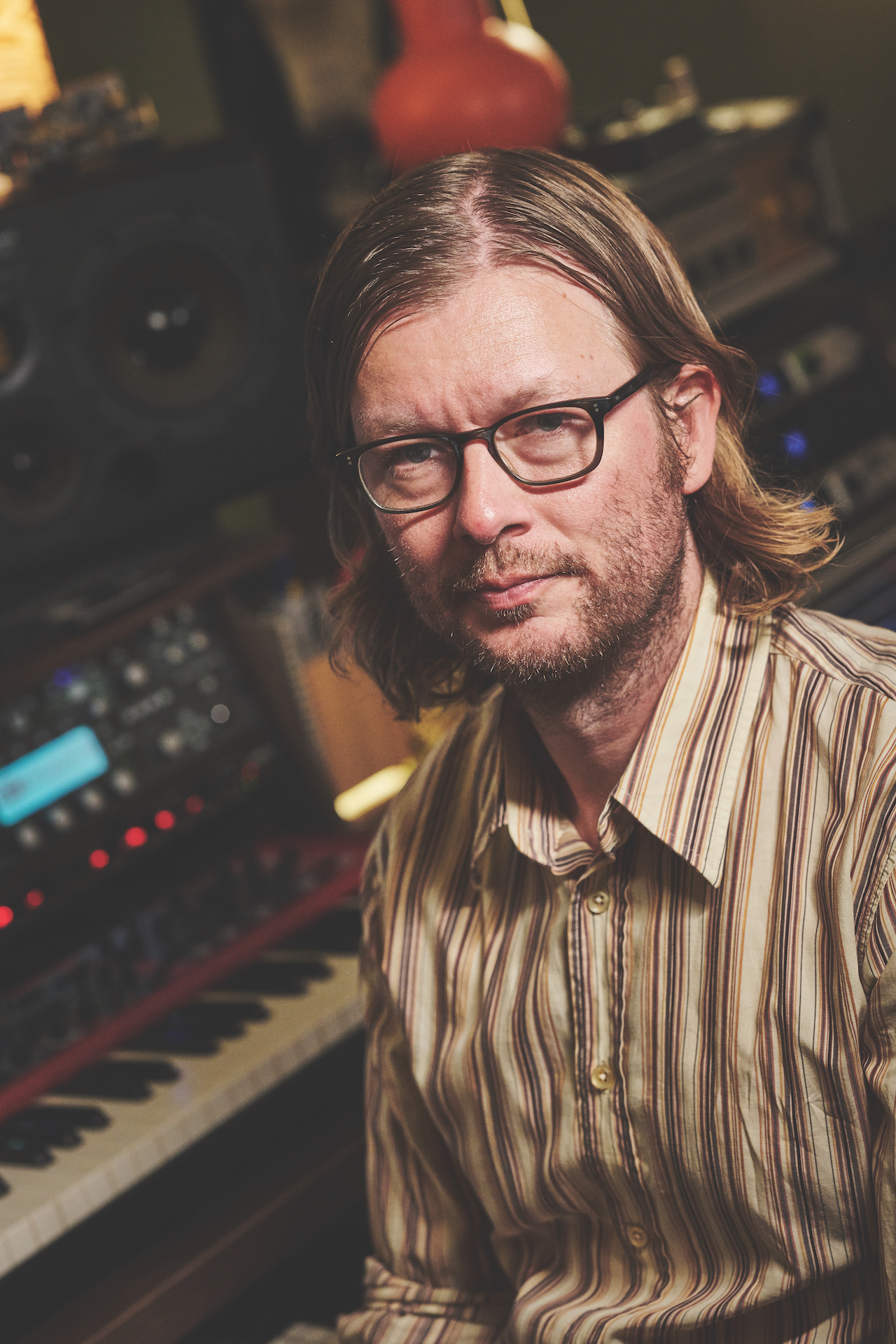
“The rest of us have to work a bit harder, but some type of human voice was needed to give the music personality, literally and metaphorically, and from an early point I could tell by the response from friends and colleagues that I was onto something. But I’m very surprised at how far we’ve been able to run with it.”
Each of your albums tends to revolve around quite specific themes. Do you need to have a concept to write towards and does that come naturally or do you have to spend time researching a topic to build an album around?
“I don’t have to write like that but I find that getting involved in stories and thinking about the bigger questions than some singer/songwriters might focus on was quite freeing, and a really good way to get outside of my own head. I just like finding subjects that I’m interested in, creating a structure that works musically and narratively and translating that into a record that people will hopefully get something out of.
“It’s a licence to go wherever and whenever, and the only real limit is my imagination. A lot of bands and artists have talked about this, but when we play a song like Go! live, for example, and it gets the response that it does, I don’t feel any personal responsibility for that. It’s weird because I remember writing it but still don’t feel like it belongs to me and I suspect that everyone - even artists who bare their soul – feel the same when they find that audience connection.”
Are you saying you don’t feel as if the song belongs to you because you can no longer identify with the person who wrote it?
“You know you’ve written some good songs in the past and can write more, but during the process it comes out of nowhere and you don’t feel as if you had anything to do with how that happened. I’ve heard Brian Eno and other people talking about the same phenomenon, but it’s probably healthy because it means that you’re less likely to get wrapped up in your own ego.
We’re not musically literal. If PSB was the exercise in nostalgia that people have accused us of, we’d put everything in the same era
“It’s like the DJ Shadow sample ‘The music’s coming through me’ – you’re basically a filter for everything you’ve heard and responded to. There are very few people who are lucky enough to be true originals and the rest of us who have any degree of modest success are the ones who are probably quite good at assimilating and combining influences in a way that feels new but almost certainly isn’t. Even David Bowie said he wasn’t a creative thinker either– he was just good at synthesising different ideas and bringing them into the mainstream culture.”
Your latest album, The Last Flight, has a very specific concept – the last flight of American aviator Amelia Earhart. Had you known about her story since childhood or did you happen to watch a documentary or read a biography?
“I had my antenna out for an interesting story based on a woman or women because most of the archive we have is overwhelmingly male-dominated – as is 20th century history. That focus gets a bit frustrating so I wanted to consciously move away from it. I tried a few things, but it was the most cursory research into Earhart’s life and seeing an image of her that I found captivating – not in a romantic sense, she just looked like an extremely interesting human being.
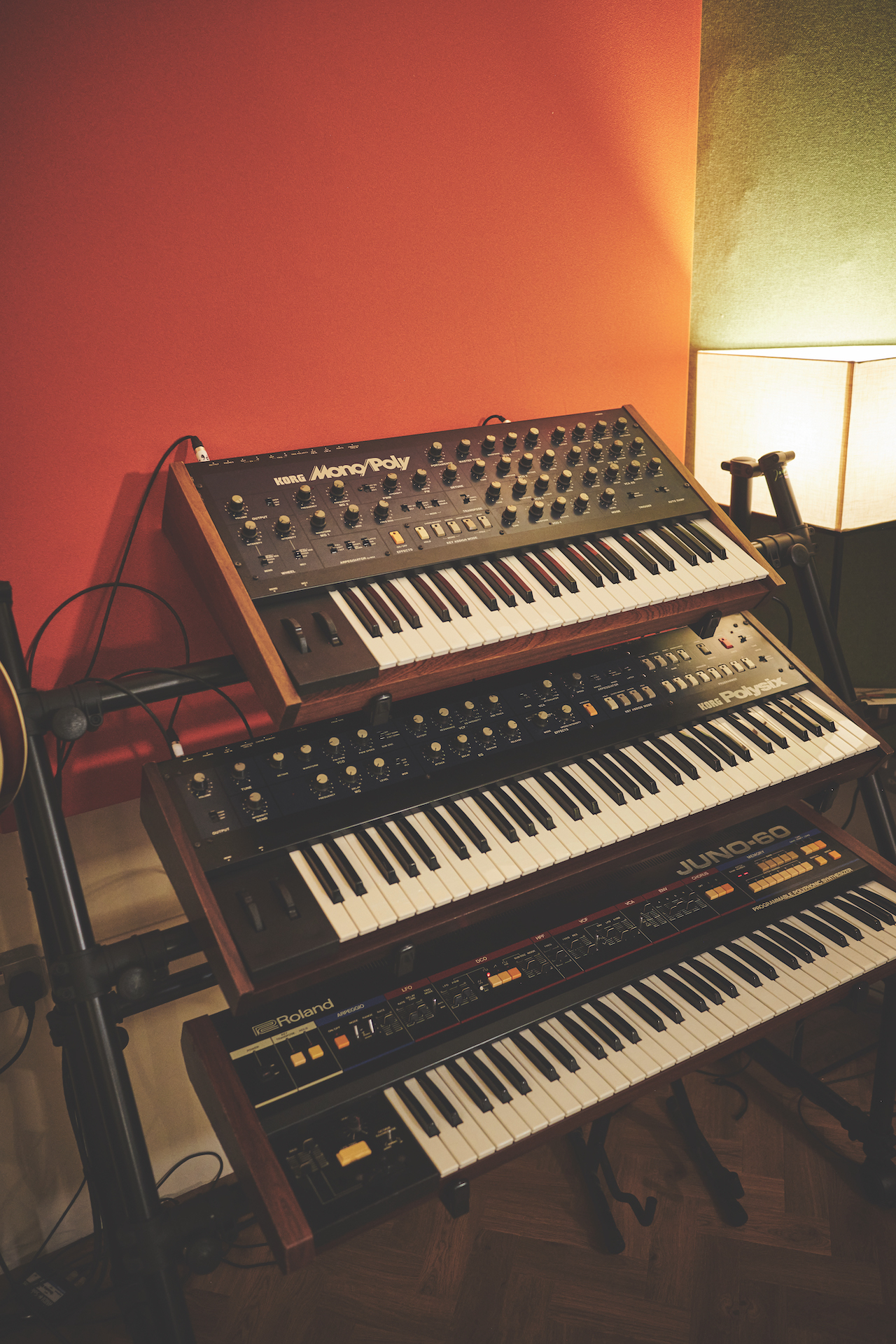
“I knew the bare bones of her life and that she was the first woman to fly across the Atlantic and the first to do it solo, but I didn’t have the subsequent level I got from reading much more about her from other people and her own accounts. She wrote an account of her final flight, a couple of other books and was a poet, which gave me a much better window into the person she was.”
What elements of Earhart’s career are most inspiring to you – the heroism of her flying or her legacy as a female role model even though she might not have realised she would become one?
“Maybe there was some false modesty on some level, but she must have known because she was a big deal and so prominent both in American culture and across the world. In terms of what I most admire about her, it’s more about what her story tells us about the human spirit. When you boil them down, most of Public Service Broadcasting’s records are about different aspects of that and Earhart’s drive and quest to know herself and feel alive in every moment are the most inspiring things.
“Obviously, her courage was tremendous and her technical and physical skill and stamina were extraordinary, as was her mind – she wasn’t just mechanically minded, but had a very poetic and philosophical side to her. She’s a very rare individual who did very rare things and it was a privilege to write a record about her.”
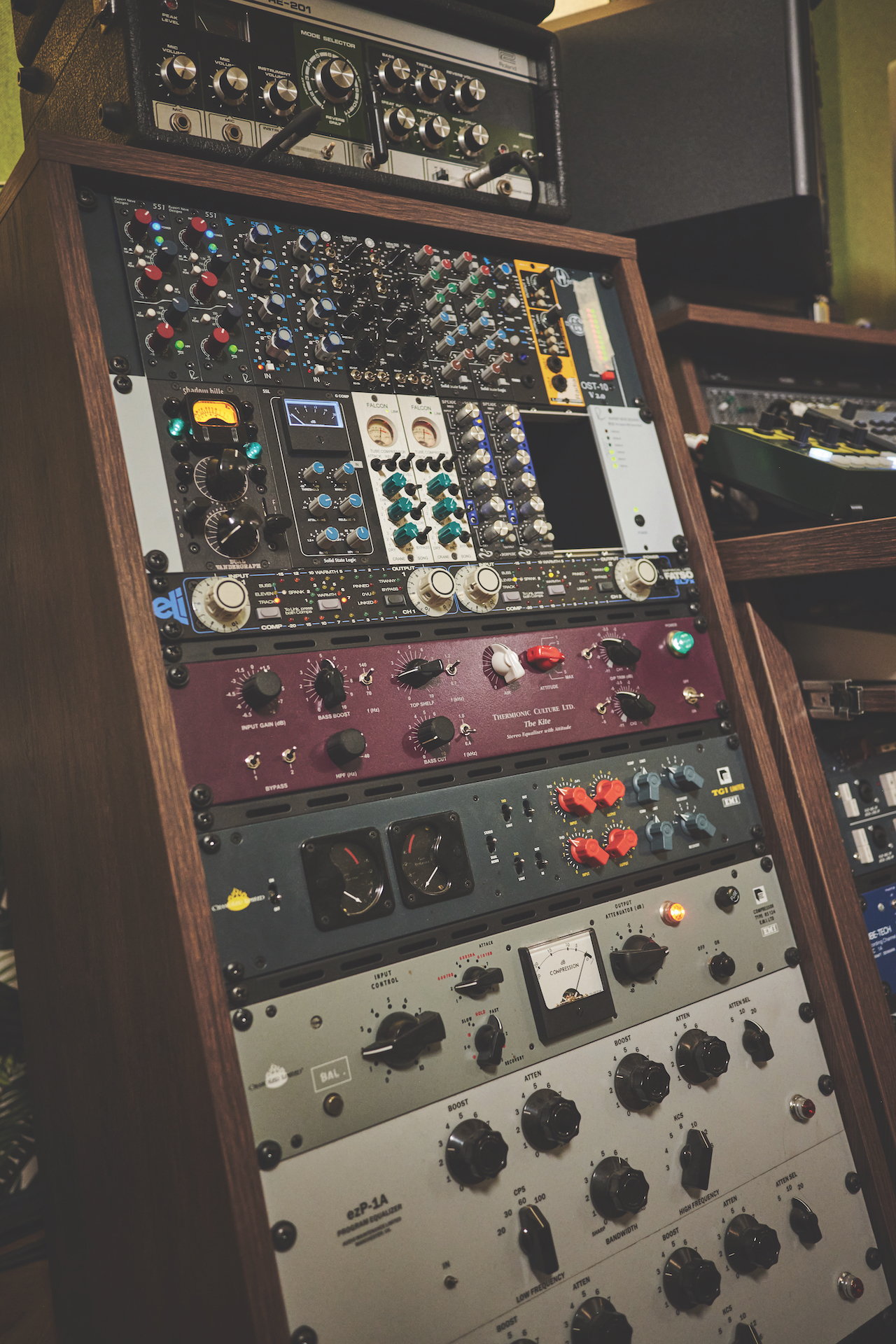
As the title implies, it’s about Earhart’s last flight in which she disappeared with her navigator while flying over the Pacific. Is the music designed to be a representation of that final act or more than that?
“It’s a journey on some levels. There are more literal tracks like Arabian Flight and Monsoons, where we’re trying to evoke certain worlds and atmospheres, but it’s also a way to try to get to know her and weave her philosophy and poetic nature into songs like The Fun of It and A Different Kind of Love. The quote “how marvellous is the machine and the mind that made it” is pure poetry and woven through the track Electra, so it’s about getting a picture of her as an individual while using that journey as the backbone of the record.”
How did you go about presenting your ideas to the rest of the band? For example, do you write thematic demos from your home studio?
“There’s not much fleshing out with the group at a later date because I’m too much of a control freak, so most of my demos are presented as a fait accompli. One thing that was different this time is that we recorded everything at our own studio in South East London, so I could say to Wrigglesworth, I can’t program drums for this track because I don’t know what I’m doing – can you come and play and record it?
“It’s great to be able to stick a mic in a room and rely on collaboration so I can be propped up by other people when I fall short as a writer or musician. I always call Public Service Broadcasting a benevolent dictatorship – I do a whole load of reading, create an idea for the structure of a record and then write the album sequentially as if I were writing a novel.”
Tell us about those early demos and where and how you typically recorded them?
“Our previous four records were partly done in the garage of my home studio, but we have a proper studio now, which is a source of considerable satisfaction for me because these rooms were essentially shells when I got them. In those particular terms, I give myself a rare pat on the back for being able to come out of that and make something that I’m proud of sonically as much as musically. We’re basically able to record drums to 24-track tape and we’ve got a lot more space than we used to have in two-thirds of a single-width garage.
There were a few head-on-desk moments, but it was really interesting and satisfying when it finally started to sound right
“We did everything here apart from one day of strings tracking because you need a big room and a lot of facilities for that. We went to The Church, which used to be Eurythmics’ studio but is now owned by Paul Epworth via David Gray I think. We basically had a strings day there with The London Contemporary Orchestra.”
How have you gone about building up the actual studio?
“I’m lucky to be increasingly less reliant on software synthesis and plugins. That’s not out of any snobbery about how they sound, because there’s very little difference other than the nightmare of maintenance for physical gear, but the one thing about having actual instruments in an actual room is that you play them differently and experience them in a physical, tactile way.
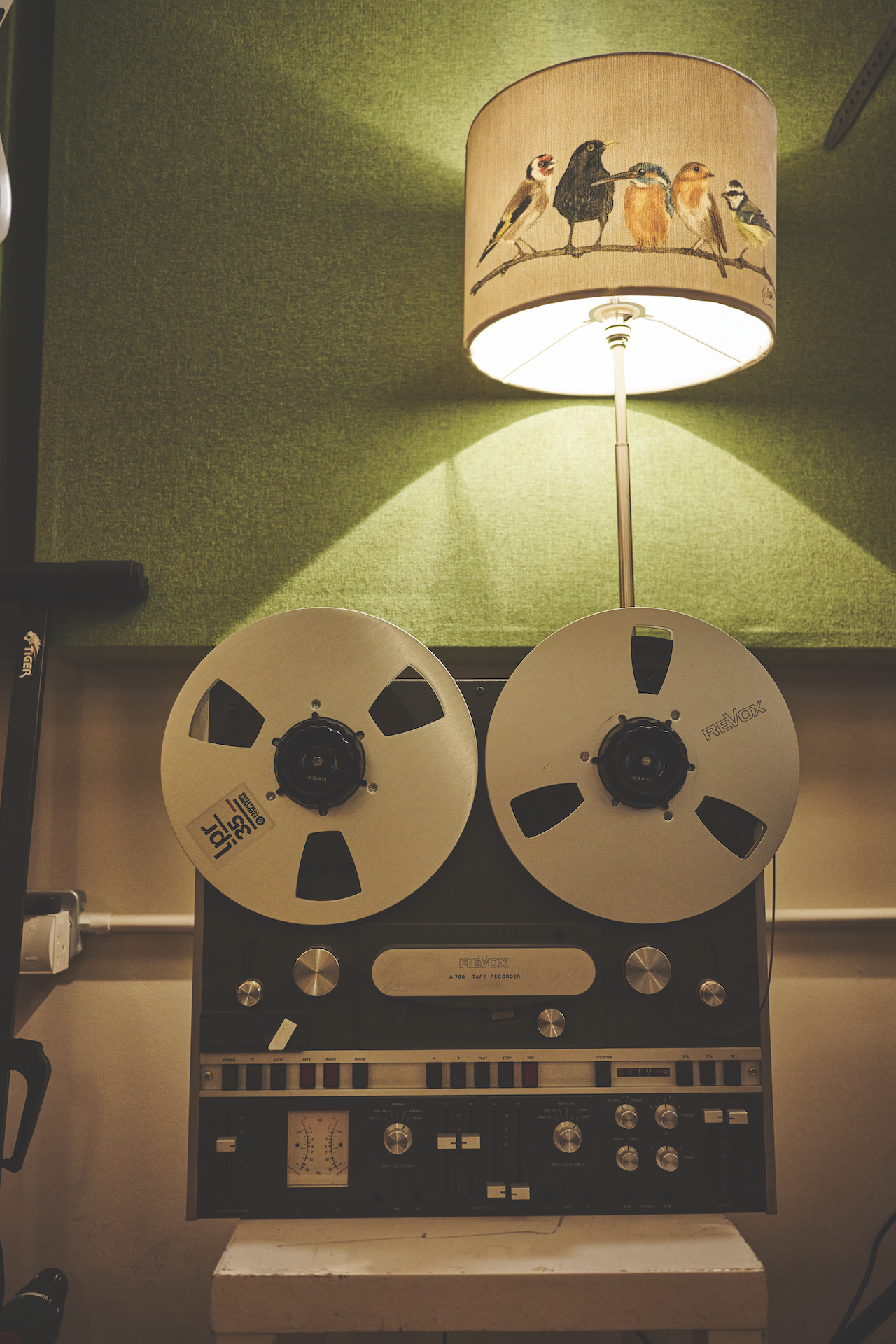
“I got a Wurlitzer for this record and the way I play that is very different to how I would play a Nord Stage 3 as my main MIDI controller. The Wurly is an instrument – it’s alive and it responds in a different way – the same way as a Roland Juno, SH-101 or my Deckard’s Dream synth. Take the Space Echo; you can get amazing emulations, but nothing matches the ability to have everything at your fingertips and just play with it. The more success we’ve had, the more I’ve been able to have those physical resources in the room.”
Which hardware was especially important to the demo-writing process?
“For this record, the Wurlitzer was a huge one because it’s on almost everything. I’ve wanted one for years and managed to find a relatively beaten up one that came back to life with a bit of TLC. I also got hold of a Korg PolySix and a Mono/Poly and new music just came out of them. A whole song came out of the Mono/Poly just because of the architecture of that synth and the way it’s designed, which couldn’t come from any other machine. The Baritone guitar was another big source of inspiration – two songs came out of that as if by magic.”
Did you opt for the Wurlitzer because it’s an instrument that you thought might in some way help define the ‘30s era?
“We’ve never been that musically literal. If PSB was the exercise in nostalgia that some people have rather lazily accused us of, we’d have tried to place everything in the same era that we’re trying to evoke. What we’re doing is bringing the past into the present, re-examining it, drawing parallels and contrasts and highlighting irony, tragedy and dark humour.
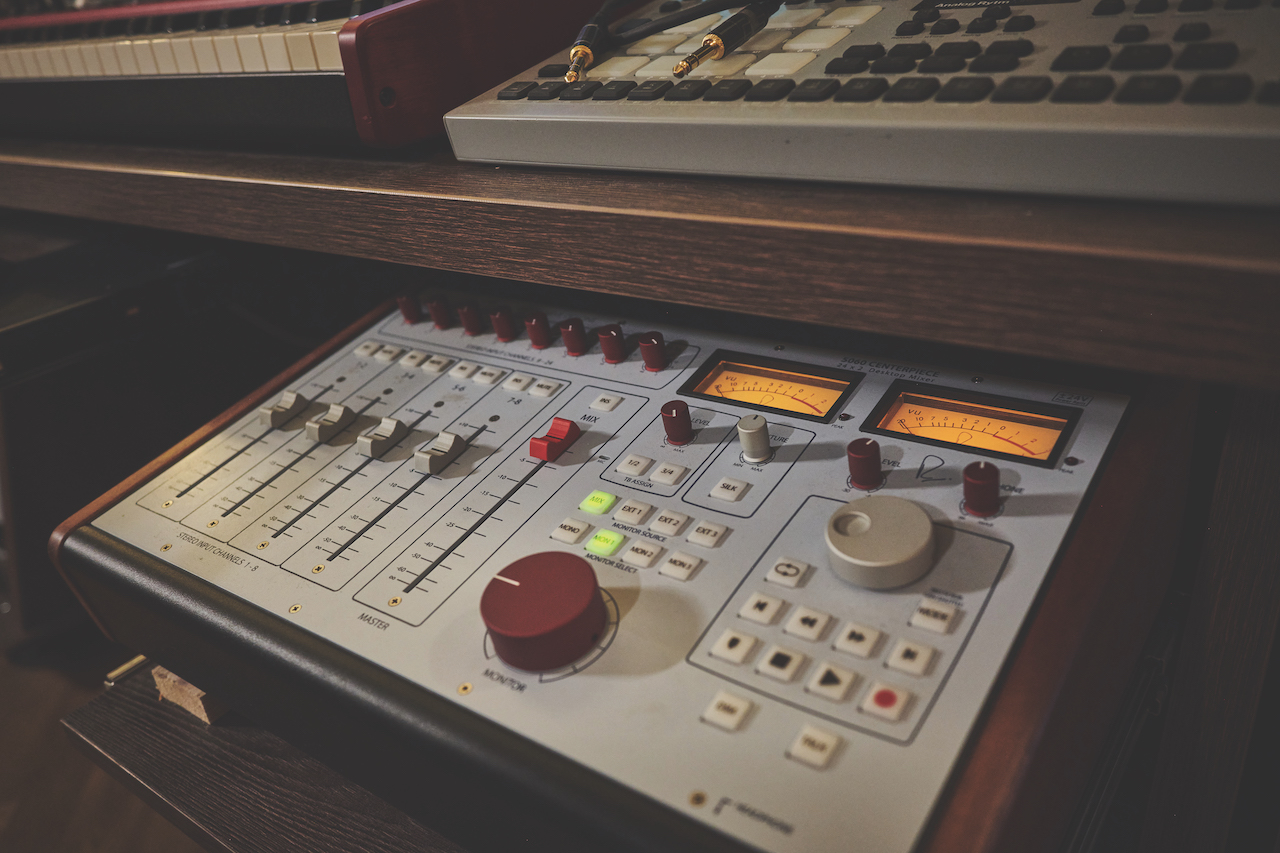
“It’s that line between the past and present with a more modern-ish-sounding music that has allowed us to cast a fresh light on some of these things rather than an exercise in pure nostalgia. I did use a period-sounding microphone for some of the voiceovers that we recorded because that was about trying to place a sound in a particular time and place and get a feeling of evocativeness.”
Is it important for listeners to understand the source material behind this album properly in order to get the full experience?
“That’s a delicate line to tread because you don’t want to make the record narrative-heavy, too wordy or beat people over the head with meaning and exposition. You want to find a way to frame it that makes sense on a first listener level but with a depth to it if people do wish to interrogate its meaning and find more layers. That’s one of the reasons why we’ve had such a strong bond with our audience.
“They bring so much from their side to hang their passion on and that bond isn’t formed because they think we’re really nice people, it’s based on their relationship to the music. I’d like to think the album is musically effective and stirring even if people disregard the narrative, which hopefully also takes it to another level. The death of the album is oversold really – a lot of people still want to get their teeth into something and if you give them something intelligent and emotionally coherent they’ll go for it.”
You mentioned spending a day recording strings with the London Contemporary Orchestra at The Church. Was that for a specific track or to collate string recordings that could be employed throughout the LP?
“I’m sure in the old days you could book a studio and an orchestra for a week and do one song every other day, but we have strings on five tracks on the record and it was demoed by myself and arranged by J.F. Abraham. We had a three or four-hour session and just got through it, but the London Contemporary Orchestra was incredible in terms of the quality and intuition that they brought to the project.
“It was an amazing day for us, but the nature of modern album-making for an independent band means you can’t afford to waste time and it was great to hear it all come together in the real world. There were a couple of moments where I was blown away by the power and physicality of what they were doing, which far surpassed what I’d written. That’s part of the benefit of working with other people, but my mental efforts on the day were based on sheer imposter syndrome and not wanting to say anything stupid. I’m the producer of the record, but I still feel extremely under qualified in those situations.”
The spoken word samples used throughout the LP are not pulled from film sample libraries but were instead newly recorded by actors. Why did you decide to do it that way?
“There wasn’t any archive or recordings of Earhart and her navigator going around the world because portable recording equipment was either non-existent or extremely heavy and cumbersome. All that really existed of Earhart and this journey was in written form or a few bits of film of her getting into a plane and flying off, but that was all very wooden and stilted and not a true reflection of her. She was a charming, funny, lively and intelligent woman, but the archive footage made her look like a cardboard cut-out.
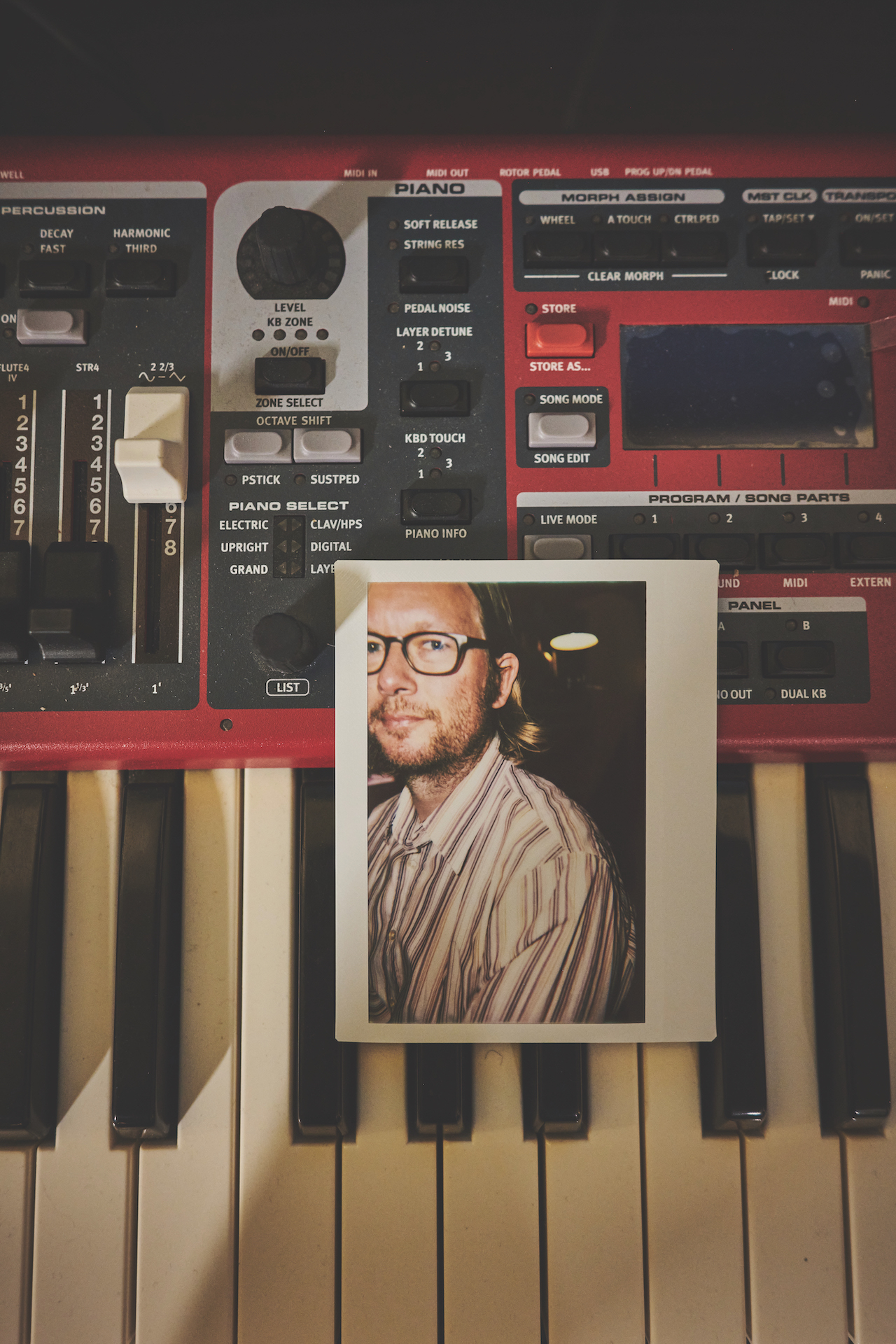
“I also wanted a challenge. Narratively, the record is A, B, C, D, with a few diversions along the way, but not having archive of the flight itself was a real source of stress, worry and anxiety. Sadly, I think you need those forces when “you’re putting a record together, otherwise you’re too much in your own comfort zone and not doing anything interesting or new. I ended up essentially writing a script, but the material didn’t exist in that form so I wanted to find out if I could find and direct actors to get the performance I wanted and make it sound convincing from a historical audio perspective.
“Normally, I’d be taking terribly recorded audio and trying to make it sound pristine enough to hear over busy music, but this time I was taking modern recordings and mangling them to try and make them sound convincingly 1930s. That was a huge undertaking and if we’ve done it well, nobody will pay attention to it. Some people don’t seem to realise that it’s not actually Earhart’s voice, which is hopefully a sign that we didn’t do an awful job.”
Was the sound mangling where the use of software plugins came to the fore?
“Yes and just thinking about the signal flow of the original 1930s archive films and voiceovers and trying to work out what lent them that particular character. The source material didn’t have a particularly rich frequency spectrum, there was a lot of distortion and in a lot of cases they were recorded in poorly treated rooms and over-compressed.
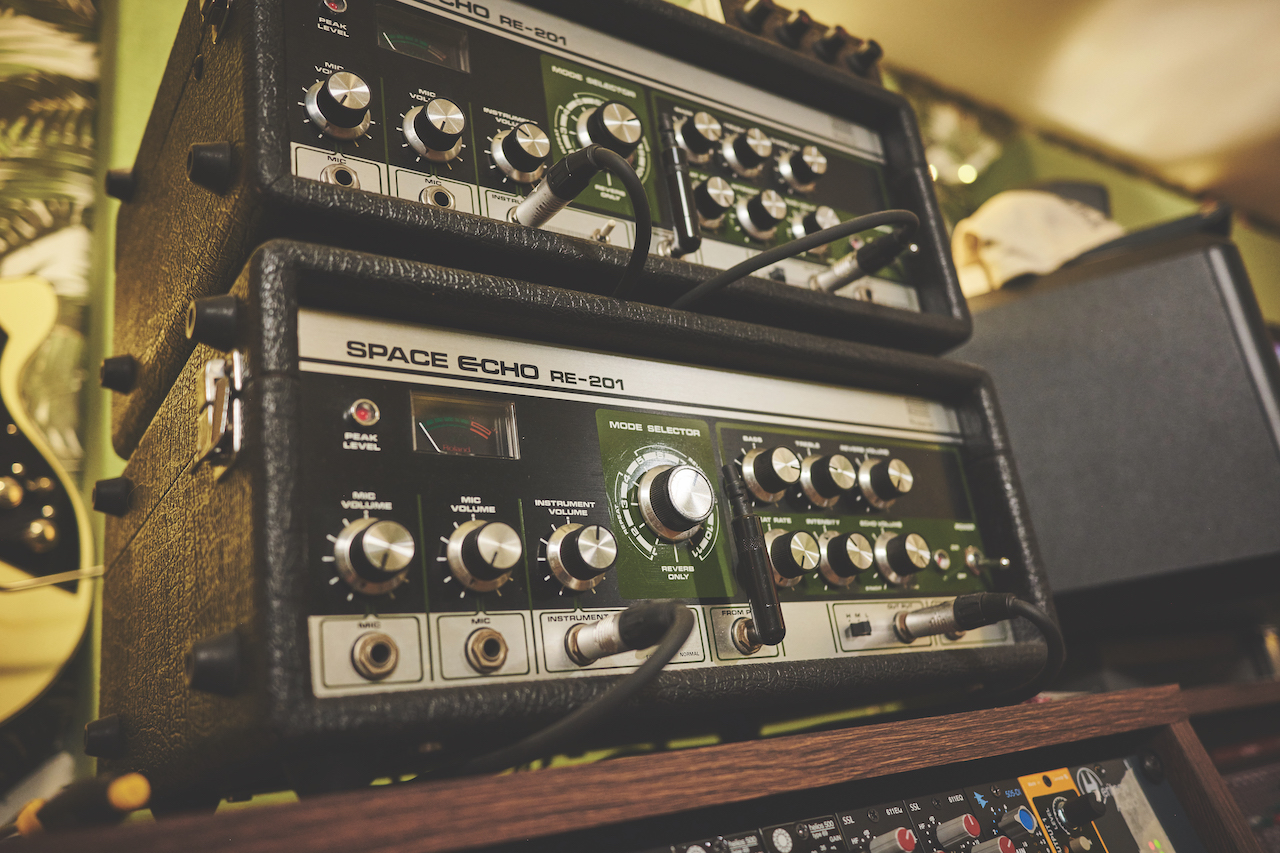
“You can do all sorts of clever things these days, so I was taking EQ profiles from ’30s/’40s voiceover artists and applying that profile to the current recordings I’d done. In Logic there’s Match EQ, but there’s all sorts of ways of overlaying a historical EQ curve to a more modern version – then it’s just about distorting the heck out of everything.
“When it came to recording the audio of Kate Graham and the other actors’ readings as if they were in a cockpit, we were playing them loud 1930s twin prop interior engine sounds from a Hollywood sound archive and getting them to speak up and over them as if they were projecting their voice. All of that stuff was a whole other level of attention to detail that we’ve not had to do before and there were a few head-on-desk moments, but it was really interesting and satisfying when it finally started to sound right.”
Do you have any tips for trying to record vocals in that way?
“I don’t think there was anything in particular, but one of the big parts of the puzzle was realising that you need to put the room sound in before the mechanical noise. What happened was that you had someone in a badly treated room talking into a microphone that was distorting, so the room was in the signal stage at a very early juncture.
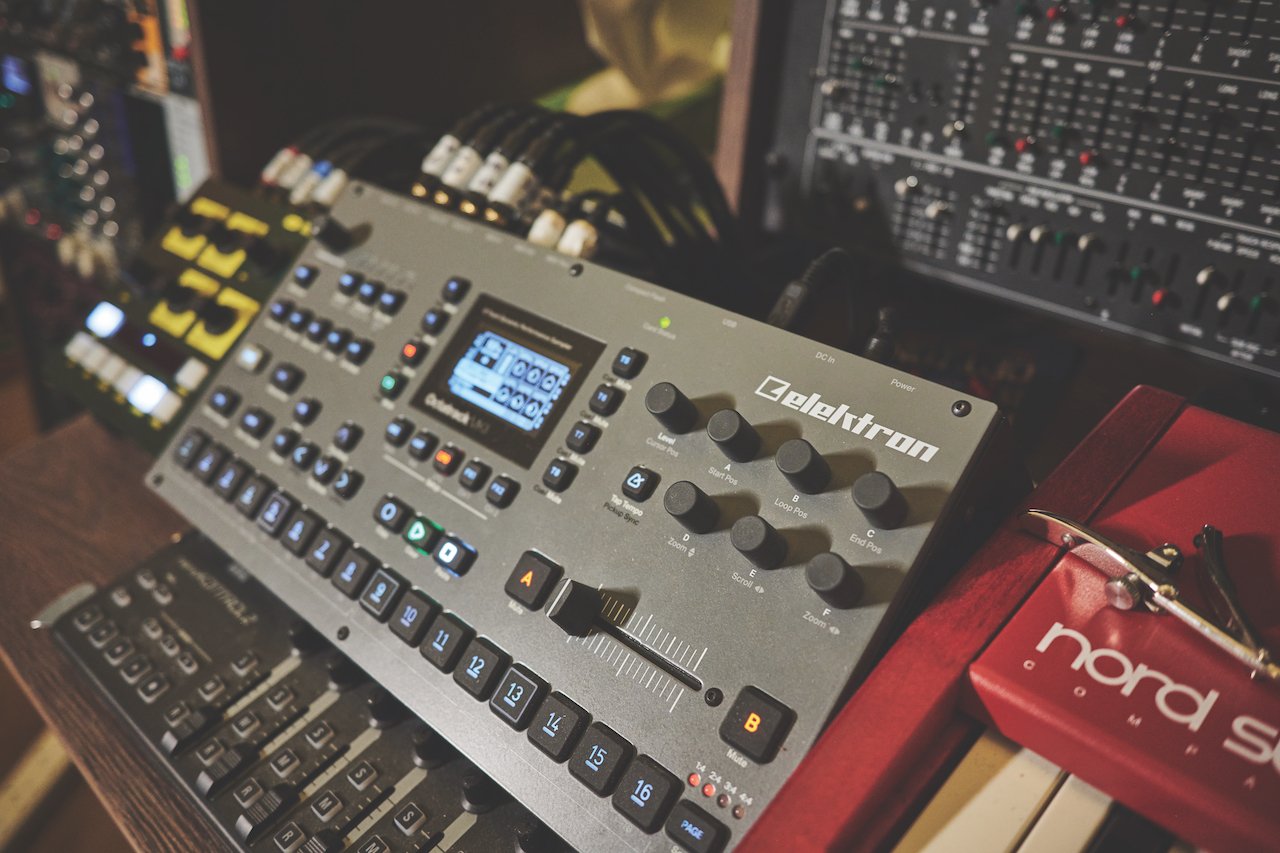
“You basically have to put the room in there first, then squash, mangle, EQ and add all the surface mechanical and electrical noise. I used a lot of Soundtoys stuff for the distortion as well as the iZotope vinyl plugin to get a bit of surface noise, hum and EQ curves. And we used Logic’s Match EQ, but it was more about understanding how those noises came to be and the challenge of setting up a modern version of that particular signal flow.”
Every PSB album has climbed higher in the UK charts and Bright Magic reached No 2. If The Last Flight was a chart topper would that have deep meaning to you?
“We can rule that out because Coldplay are releasing in the same week. Obviously, chart positions are nice, even if they’re not important anymore for the wider public, but people within the industry do pay attention to them and how many records you’re selling. If you were to offer me the choice between a number one album and a fully sold out tour, I’d always take the tour because I love playing music live. I guess Chris Martin’s probably got the edge on us, but we’ll see how far I can push him [laughs].”
• Public Service Broadcasting’s The Last Flight is out October 4 on SO Recordings. For more information, visit their official website.
PSB’S go-to gear
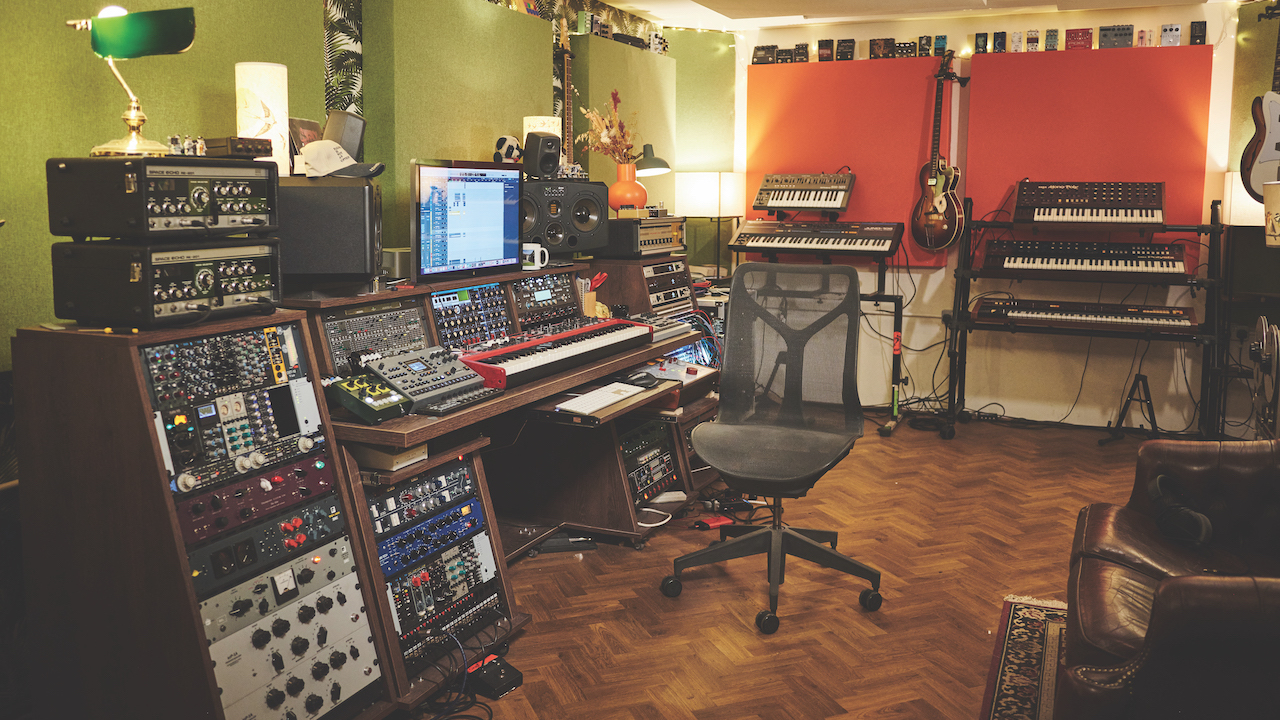
Korg Mono/Poly
“A weird synth in terms of architecture but that can be its own inspiration because I ended up getting a whole song out of the fact that it’s such an odd machine.”
Roland SH-101
“Such a deceptively simple beast – and beast would certainly be the right word! It’s just really fun too, which always helps with ideas.”
Deckard’s Dream
“For those of us without £80k to spare, a much more affordable CS-80-like synth, but one that does its own thing. Very evocative – one note does more than five or six on other synths.”
Roland Fantom 7
“Analogue gear gets all the attention these days, but you would need a good workhorse for filling in the gaps and this does it better than anything I’ve had before.”
Wurlitzer EP-200A
“I’ve wanted a Wurly since we first used it in 2017 and finally got hold of one. A living, breathing thing – inspiration just comes flowing out of it.”



